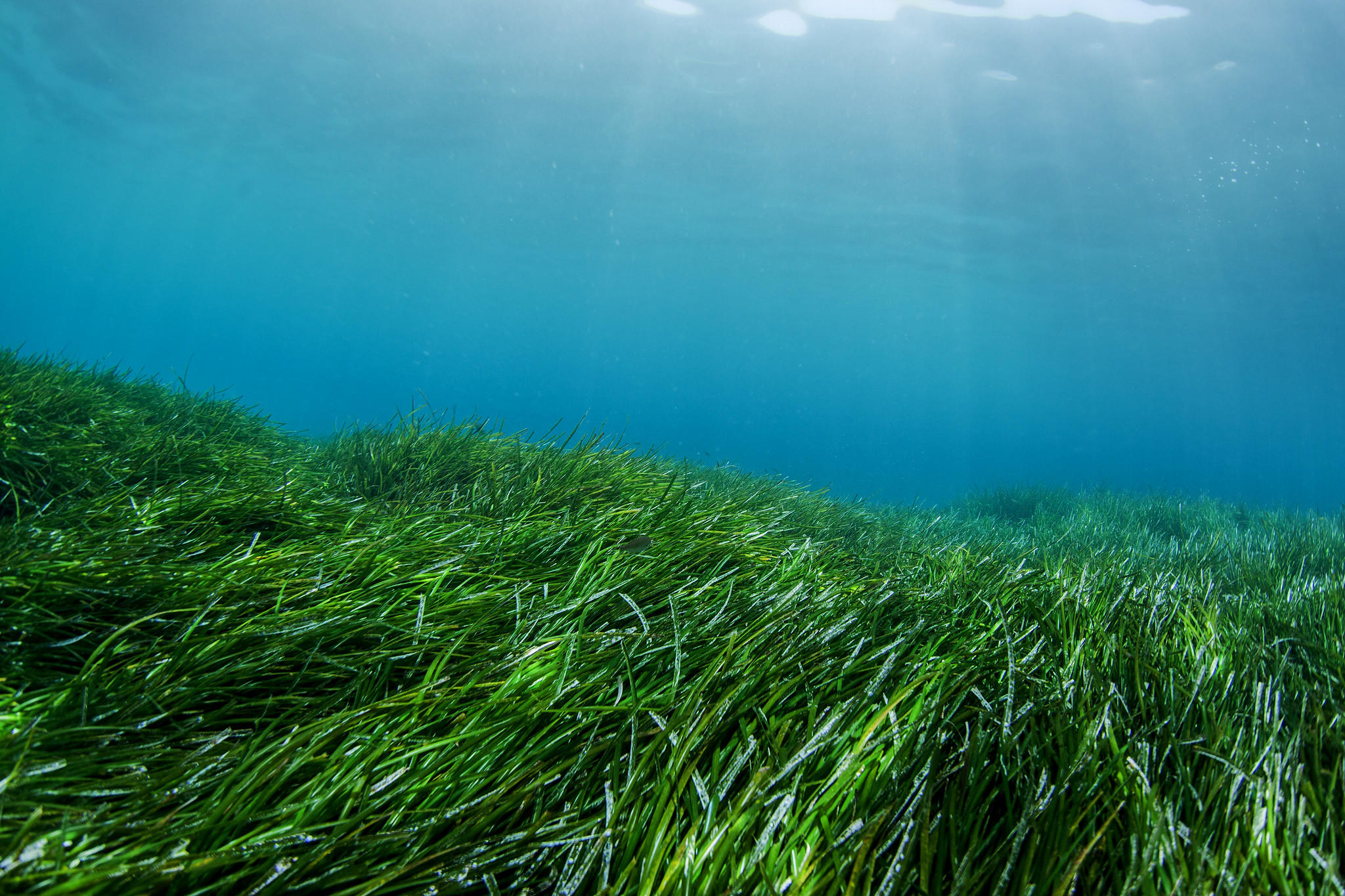Posidonia oceanica, also known as Neptune grass, is an aquatic plant endemic to the Mediterranean Sea, and as such has roots, stems, leaves, flowers, and fruits. It develops by forming true underwater prairies which, as much as those on the surface, play a key ecological role in marine and coastal ecosystems by harboring and providing shelter for numerous species of fish, cephalopods, and crustaceans. Their high production of oxygen and plant biomass makes Posidonia prairies not only hubs of biodiversity but also one of the most efficient CO2 sinks on Earth.
These seagrass beds are critically important in counteracting coastal erosion: they provide a barrier against excessive transport of fine sediment by coastal currents and dampen their impetus, particularly during the winter storm period.
These complex ecosystems have been designated as “priority habitats” and need special care. Across the Mediterranean, their extent is declining sharply due to marked susceptibility to pollutants, trawling, and excessive water turbidity from heavy boat traffic. In addition, the introduction of alien species and the construction of large coastal works also interfere with the balance of the ecosystem.
Sea the Change is active in the protection of Posidonia beds through its collaboration with the Anellides Foundation, helping to map and delimit marine areas covered by Posidonia meadows in unprotected areas of the Catalan coast. These areas are most vulnerable and at risk due to harmful behaviors and practices by boats. By investing in Sea the Change activities, these delicate ecosystems can be protected, resulting in multiple environmental benefits.









